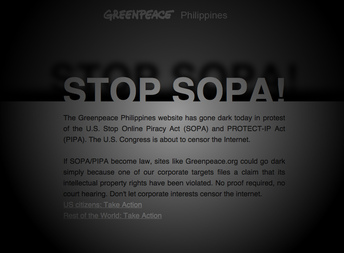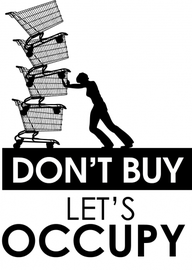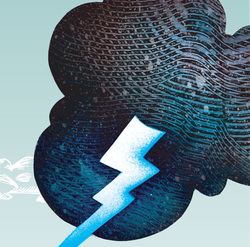|
Y'all. I wrote another letter to my legislators. I'm posting it to share, if you want to print it out and send it to your legislators. Feel free to download it and/or copy it. Make changes as you see fit, or use it just as it is.
Here are links to find the names and addresses of your elected representatives:
http://www.house.gov/representatives/ http://www.senate.gov/pagelayout/senators/f_two_sections_with_teasers/states.htm The President's address is The White House1600 Pennsylvania Ave NWWashington, DC 20500 Yep, it's an uphill struggle. But/and we're averaging almost 2 mass shootings A MONTH in the U.S. One voice, no matter how small, is louder than a thousand silent people. Thanks, y'all.  So I was signing on to Authors for Library Ebooks and I accidentally wrote a screed, which I might as well share here, since it uh, might otherwise never see the light of day. Their prompt: Please tell us a little about you, your experiences with libraries and/or why this issue is important to you and your readers. My response/accidental diatribe: Library access to ebooks is important to me because LIBRARIES are important to me. My small-town library was everything to me growing up: escape, information, inspiration. And nowadays, as a grown up and parent and author and booklover, I still use the library every week. Okay, sure, I like when people buy my books -- but what is much, much more important to me is that people READ my books. Or any books. Read anything and everything. Everyone in this country (actually, everyone in the world, but I guess I'll stick to this country for now) should be able to get their hands on any book they wish to read. EVERYONE. Children, teenagers, waitresses, college students, factory workers, night shift janitors, retirees, the poor, the rich, everyone. Regardless of ability, or inclination, to pay. Okay, stepping down from my soapbox. Rant. Sorry. Anyhoo. What was the question? Oh yes: ebooks. Look, I don't know everything, but I do know this: publishers are terrified that technology is changing the landscape of publishing. And hey, it's okay to be scared; I get freaked out all the time. But you know what? Change is what makes the world go around. Or maybe it's physics? Like I said, I don't know everything. My point, and I do have one, is this: let's embrace the promising aspects of technology (e.g. the fact that e-books don't wear out after multiple uses --to say nothing of the wonderful fact that you can read an ebook after lights-out, and be all sly about it, and not get busted!). Let's encourage publishers to let go of their fear of change, which manifests in not offering ebooks to libraries, or in placing artifical constraints --like, say, requiring repurchase after a certain number of checkouts-- where they aren't needed. At its best, technology is the promise of access. So, yeah. Read. Even after lights out. That is all.  My 40th bday party. FOMO?!? My 40th bday party. FOMO?!? Truthy-ish transcript from the park, walking the trail while our kids level the playground, mid-August 2013 BFF: So, how's Facebook-free summer? Me: Great! BFF: Have you truly, honestly been off Facebook? Me: Yup, since the end of May. Although I admit: last night, I went on Facebook to grab a friend's email address for my newsletter. And I forgot to not get sucked in. I started reading the news feed. BFF: And how did that make you feel? [Worth noting: BFF is a therapist] Me: Honestly? Yucky. Left out. Immediately just ... sad. My friends had photos of getting together -- and even though these are people who live far away, and I never see them -- I still had an irrationally sad, left out feeling. I should be happy to see them. But it was the exact opposite. BFF: I know exactly what you mean. That's how I feel from Facebook, too. Me: I just read a study that said that the more people look at their newsfeed, the unhappier they are. BFF: It's FOMO! I read an article in Oprah magazine about it. ME: FOMO? BFF: "Fear Of Missing Out." It's a nation-wide phenomenon. I think everyone has it to some degree-- ME: [Interrupting, because I'm horribly rude like that] --And Facebook makes it worse! Because honestly, when was the last time I had that "left out" feeling? I'll tell you when. The last time I checked Facebook. And before that? The high school cafeteria. Worrying whether I'd be invited to the cool parties. Wondering if friends were making plans without me. Hoping I wouldn't miss anything on the night my parents made me stay home. Totally miserable. BFF: [Laughing in a commiserating way, because she's awesome like that] Right! Before my birthday party last week, I figured a friend would post about it, so I pre-emptively posted, "Don't worry, you didn't miss out on anything good," so my other friends didn't feel left out. ME: That was nice of you. Related: I think it's good I do Facebook-free summers, because that's when I tend to have big parties-- BFF: -- Thanks for inviting me to your big party, by the way. ME: Ha ha. Of course. Anyway, AS I was saying ... it's good for me to be off Facebook, so I don't get sucked in to posting all these cool photos from my rad dance parties, and feeling socially competitive. BFF: You feel socially competitive? I don't see you that way. ME: [blinking rapidly] Girl, I love you so much. BFF: Aw. I love you, too. So, the big question: are you going back to Facebook? ME: I thought about just ... not. But, yeah. Honestly, I feel like I need to, for work. To network, and make updates about my new books coming out. BFF: Yup, I need it for work, too. Still gonna take summer vacations from it? ME: Mos def. And I'll be more mindful how I use it. I'm not going to reinstall the app on my phone. I'll only check it when I'm on my computer. BFF: Smarty pants. ME: Also, this is going to sound really selfish, and I worry that it might be narcissistic... BFF: Yeeees? ME: But I think I might be happier if I stay self-centered on Facebook. Literally self-centered. Check my own pages, but not look at friends' stuff, or the main news feed very much. But if everyone did that? Facebook would be pointless. No sharing. Everyone would be disconnected. BFF: Hm. ME: Then again, maybe everyone would be happier. The irony of Facebook: human connection is supposed to make you happy. So more should be better. But more, in this case, is worse. BFF: So, to be happy, humans should stick to the old in-person walk-and-talks. ME: Like this one. Brilliant. (...except I am now posting this on my blog and Facebook. Oh, irony, you cruel, cruel temptress.) Note: You can read a fab summary of studies about Facebook misery, "Can Facebook Survive If It Makes Us Miserable? by Charlie Warzel for Buzzfeed, here. And the great article on FOMO, "Three Strategies To Beat Your Fear Of Missing Out," by Martha Beck, for Oprah Magazine, here.
When my first novel, This Girl is Different, came out last year, I avoided reading reviews. Avoided like the plague. The very thought of their existence filled me with Walking Dead dread.
My publicists, editor, and agent are very careful not to send me reviews, per my request; reviews get sent to my manager (aka my husband) who reads them, but keeps their contents in the vault. He tells me excerpts for my website and Facebook and stuff. You’re probably all, “Time out! I call WUSS! Authors need thick skin. You gotta listen to criticism. Otherwise you won’t grow as a writer.” Yes. Agreed. I am a wuss. And agreed: critique is paramountally important.* [Yes, I just wrote paramountally. Whatevs. I’m writing this in the thick of a bunch of 7 and 8 year olds constructing scrap-material cars, and they’re all screaming and running around, and I forgot my earbuds. ARGH.] Anyhoo. Where was I. Right. Critique. Critique is one of the top three necessities of successful authors -- the other two necessary components being (1) writing, and (2) reading a ton. I am open to critique, but here’s the thing: source matters. I am wide open to critique FROM PEOPLE I TRUST. Are most professional reviewers smart, thoughtful readers who care about books and their place in literature and libraries? Almost certainly. But what about the few bad apples? What if my reviewer is a Bitter Betty who gave up on her own novels (or never even got started) and is now on a mission to spread misery wherever she goes? That’s not a review I need to invite into my psyche. So now you’re all, “Why not just read the good reviews?” Well, because. If I take to heart the good reviews from people I don’t know, it’s only fair I take the bad. I suppose I could do like the Olympics, and discard the top and bottom scores, but that’s getting a bit complicated. Besides, I’d have to read them all to keep track. So. Here’s what I do: I listen to people I trust. My critique group (Stephen Messer, Jennifer Harrod, John Claude Bemis – Adverb Fight Club, holla!) are my first readers, and we meet and drink coffee or beer and they tear my work to shreds. Shreds. AND THEN THEY HELP ME BUILD IT BACK UP into something better. Because they are my friends, and they are super smart, and they are working on their own books, and THEY HAVE MY BEST INTEREST AT HEART. They have my back; I have theirs. End of story. Well, actually start of story .... After Adverb Fight Club does their worst/best, I rewrite. And then hand it to my husband to read and critique, and I fix more stuff. Then it goes to my agent, who is super thoughtful, professional, and honest; based on her feedback, I make more changes. If you’re keeping track, that’s at least five critics – and probably twenty re-writes – before a manuscript hits the desk of my editor at Peachtree, Kathy Landwehr. Who then rips it to shreds … again. And so I rewrite it again. And I give it back to my critique group. And then my husband. And then back to Kathy. (Ginger gets spared that round.) Then it goes to my parents and mother-in-law, and Peachtree’s several copy editors. THEN it goes to print. So. Yeah. I can take criticism. But I don’t read reviews. Except when I do read reviews. I’ve read a few more of them with the publication of my second novel, The Theory of Everything. And I’ll be honest, I was stoked to get a starred review from Publisher’s Weekly. Because it was complimentary, yes, but mostly because maybe the little red star in front of my book gets it on more school and public library shelves, and into the hands of more readers. *Thick skin is not necessary; persistence is. But that’s another blog post for another time.  The time: June 2012. The place: St John, USVI. I'm in an island paradise, sipping a drink, staring at this four-foot-long iguana staring back at me, and instead of thinking, Wow. What a cool creature. Or, I'm a lucky girl. Or [Zen lack of thoughts, Be Here Now]," I'm thinking, I can't believe the wireless is down! I need to get a photo of this on Facebook, stat! And then I said: "Facebook, I need a break. It's not you, it's me." Four reasons:
 Let me be clear: as an author, I care a lot about copyright and piracy. But I care a lot more about freedom. SOPA and PIPA would let the US government --and the big corporations most of our representatives are clearly beholden to-- mess with internet content AND structure. I'm convinced that SOPA and PIPA will break the internet -- technically, practically, and philosophically. If you want to learn more, the video is a great primer. But don't take it from me. Do your own research. And when you do, please contact your representatives. Stat. (Click the link at left to contact your reps, but remember, when it comes to actions like this, phone calls count a LOT more than e-mails.)  _T-MINUS three days before Christmas. Once again, Charlie Brown has kicked us in the gut with his wimpy-sad tree, reminding us that the season isn't supposed to be about consumerism. And yet. And yet the hubs and I are counting the rechargeable batteries we need to stockpile, since Santa's official policy is "batteries not included." (Oy. Santa. That's a whole 'nother post.) Got me thinking, as it always does, about consumerism. I wrote this article for Friends Journal, "On Potty Training and Consumerism," and thought I'd share some of it here. My article (apparently from a time in my life when I was much wiser) concludes thusly: "... Ultimately, consumption doesn’t only mean buying things; it connotes an illness of taking in more than we put out. Consumption, to me, includes watching too much TV, eating non-nutritive foods, being too lazy to hang the clothes outside to dry, reading celebrity magazines, gossiping, driving a gas-guzzler. Consumption is that which distracts me from the real work—and joy—of life: connection, creation. The opposite of consumption is creation: giving, generating, being generous. Connecting to myself and others. Examples? Hiking, yoga, writing, sharing wholesome dinners, playing with my family, spending time with friends, making gifts, attending Meeting for Worship, gardening, voting, camping, being intimate, caring for the Earth, reading good books, praying. My goal has become to put out a bit more than I take in, on a daily basis. It’s the days when I give Sam my full attention, when I eat well, when I garden, when I really listen to my husband, when I walk in the woods, when I write a new chapter of my novel—when I then fall into bed exhausted, with a content heart. That, to me, is the opposite of consumerism. That is valuing creation more than consumption. And that’s what I want to teach [my son]." What do you think? Leave a comment; I'd love to hear from you. CLICK THE 'READ MORE' LINK TO READ MY "ON POTTY TRAINING AND CONSUMERISM" ARTICLE --->  _This "authorthoughts" interview by thatcovergirl.com isn't exactly new; I'm re-posting due to popular (or perhaps polite) demand. JJ: I really didn’t have a sense of what the cover might look like, and I didn’t give any concept input to Peachtree. The only thing I knew for certain was that I did NOT want what I call a “headless girl body” cover: those YA covers with a photo of a skinny teenager, wearing trendy clothes, whose head is either cropped out of the picture or hidden behind some object. I assume those covers are trying to encourage readers to picture themselves as the heroine (“insert your face here”), but I think they’re very objectifying. Our culture already tells girls to think their bodies and clothes are the most significant part of their identity, and “headless girl body” covers reinforce that idea. What does it say when the heroine of a novel doesn’t have a head worth including on the cover? It’s a subtle message, but it’s unhealthy. Readers need to see whole people, with strong minds and smart brains attached to their healthy bodies.... read the full interview: http://thatcovergirl.com/2011/03/17/authorthoughts-jj-johnson-this-girl-is-different/ OR CLICK OVER THERE TO READ MORE ----> |
||||||||